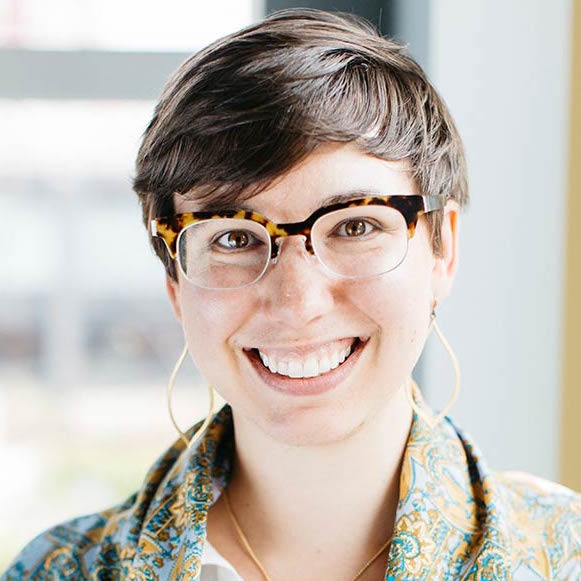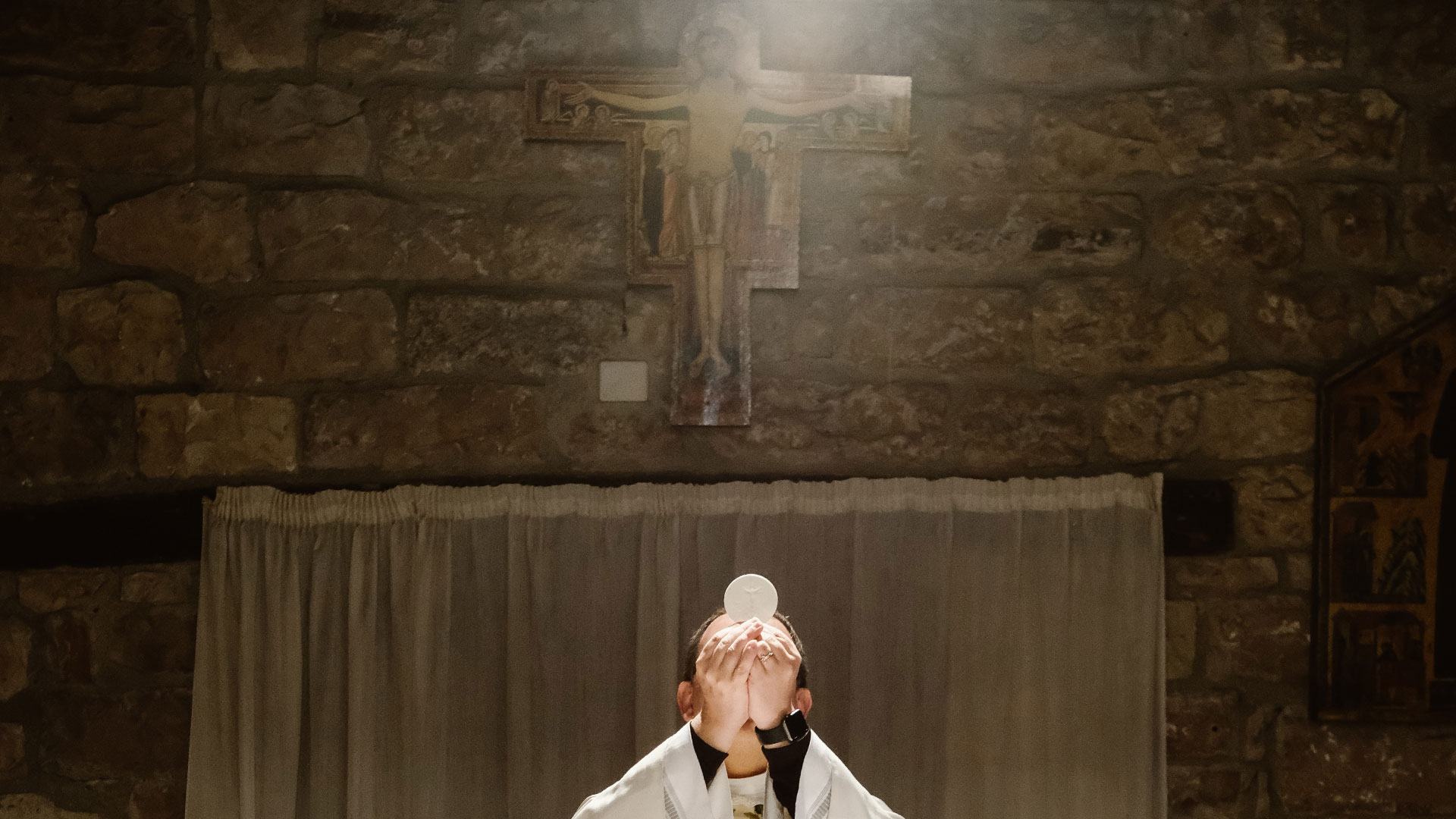As an institution that trains pastors to serve in a wide range of contexts and denominations, and as a community that is deeply invested in the health of the Church, we were closely following the United Methodist Church’s General Conference on Human Sexuality—and the conversations and laments in the days that followed. Here, Kate Davis, Director of the Resilient Leaders Project, reflects on the pain that comes when the body of Christ is wounded—and the hope-filled belief that that body is still not broken, that reconciliation and new life are possible when we are open to grief and lament.
To continue this conversation, we’re also sharing Elliot Huemann’s vulnerable plea that the pain of LGBTQ+ Christians be heard honestly, Jennifer Fernandez’s thoughtful exploration of the dangers of conflating the Church and Christianity, and Dr. Derek McNeil’s reflection about global complexity and the pitfalls of ethnocentric theology.
What a hopeful time for the Church in America.
It doesn’t look like it, at first glance (or perhaps even first dozen glances), but in the midst of grief, I feel the greater undertow towards hope. My tears are both lament and cleansing baptism.
The headlines in my newsfeed are focused on the fracturing, fighting, and forsaking taking place in the United Methodist Church. The rejection and righteousness felt by both sides. Grief is expressed, prayers offered, services held.
It’s the grief that strikes me, more so than the split. Many of the prayers and laments offered are from Christians who aren’t in the Methodist tradition. I’m also not Methodist, and have been processing the news each day with friends and colleagues who identify across a number of sexualities and come from various traditions, including some who don’t currently identify as Christian at all. From the depth of pain and grief expressed, you’d never know that we aren’t all Methodist.
Because despite centuries of denominational splits and rewritten polities and institutional barriers, we are all still the singular body of Christ.
“Despite centuries of denominational splits and rewritten polities and institutional barriers, we are all still the singular body of Christ.”
In the crucifixion, Christ’s body was wounded, but the bones remained intact. There are no breaks in the body of Christ. No fractures. No amputations.
Which isn’t to say there aren’t wounds. His wrists, his feet, the cut on his side, the crown of thorns—wounds abound. The wounds are not superficial; they go deep, and the nails go all the way through. Thomas is able to insert his fingers into the side of the resurrected Christ. The body of Christ is deeply wounded, but remains intact.
Which is why this week has hurt so much. We are still the body of Christ, and we feel the nail pierce our flesh, no matter the distance of denomination, tradition, theology, ideology. It turns out that the God who holds us together is bigger than polity, that words can deeply wound—even unto death—but cannot break us.
And this is what strikes me as hopeful in this season: the recognition of pain. Our collective feeling of our hurt—no matter tradition or sexuality—means that we’re in touch with our common humanity. The shared lament offers us an opportunity to draw closer to one another across perceived differences—even as it feels like our two hands are arm-wrestling each other.
Because I direct a program designed to cultivate pastoral resilience, the question keeps coming to me: What does resilience look like in the midst of this? It looks like grief. Like tears and lament. It looks like fully entering into grief, and the ability to do so because we know God is with us into suffering, through death, and on the other side. It looks like entering into pain with the expectation that the experience will form us.
The disciples didn’t get to fast forward from the crucifixion to the resurrection. They had to grieve through Holy Saturday, with the certainty that the man they had thought would save Israel was dead. I trust that God’s timing wasn’t off, that it was necessary for the disciples to go through this day of grief before the resurrection occurred. I believe God was inviting them to something formative on that day through their grief.
We don’t get to fast forward to resurrection or reconciliation either. But we can enter into grief with the trust that it’s formative, perhaps even necessary. And we can grieve with the memory that reconciliation and resurrection have come before: that Jacob and Esau embraced, that Joseph kissed all his brothers and wept over them, that salvation came even from a Samaritan. Sometimes years pass before reconciliation occurs, necessary time in which God does the formative work to make reconciliation possible.
May this season be an opportunity for us to identify as citizens of Heaven more primarily than members of any denomination or ideology. May we enter into the wounds of the body of Christ, recognize our shared pain, and proclaim together: “My Lord and My God.”
Rev. Steve Wolff is a pastor of a UMC congregation in Nehalem Bay, OR, and a participant in Resilient Leaders Project. I reached out to ask him how he’s doing in the midst of his congregation’s decision-making process. Steve has held different stances on LGBTQIA questions during his 35 years in the denomination, initially in the traditionalist group before moving into the open and inclusive one. I value Rev Wolff’s perspective because he’s a kind, connective soul who speaks with both strength and mercy, and I am grateful for these words he shared about his experience:
Since I serve to a progressive congregation in a progressive Jurisdiction, I have felt all along like I was pretty secure in what I felt and where I belonged. That said, I have been surprised at how much this vote has affected me. I have been part of this denomination for some 35 years, and have moved from initially being in the traditionalist group into the open and inclusive camp. It has been journey of discovery, but now I feel like I have moved from the United Methodist Church to the Untied Methodist Church and that we are adrift.
All this is preamble—here is what I have been thinking about today. A dear friend of mine brought up the good Samaritan, wondering what should this general conference have done in light of that parable? That got me to thinking of a teaching from my old Seminary professor, Bill Mallard. What Bill pointed out to us was that Jews and Samaritans hated each other. Most of us know that, but somehow when we read the parable, we forget. So, in a parable told by a Jewish man, to a Jewish audience who would be identifying with the assumed Jewish protagonist, the one who comes to save is a member of their most hated group. At least part of what Jesus was teaching is that loving our neighbor is not just about us saving the hated person or class—it is accepting that the hated person is saving us. As I look at General Conference 2019, I see that the presenting problem is Human Sexuality, but much of it is about power: who will have the power to determine who is in and who is out, and both conservative and progressive voices are jockeying for this authority. How different would this look if we were to let the most abused and reviled groups save us? Now that would be an inspiring generosity. I can’t explain how, at least right now, but that idea of salvation by the least of these keeps me going.
In the hope of fostering faithful dialogue that understands narrative, wrestles with intersections, resists reactivity, and fosters radical hospitality, we seek to feature work from a wide range of backgrounds and perspectives. Therefore the opinions expressed on the Intersections blog are those of the authors and do not purport to reflect an official statement regarding the views or opinions of The Seattle School. You can read more on the Intersections landing page.


